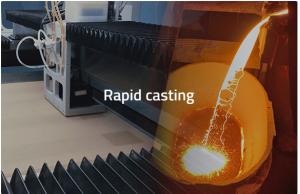CNC Machining: The path to unprecedented Precision
CNC machining is a fundamental unit of modern manufacturing because the use of automation can significantly improve the accuracy and reliability. CNC is also vastly different from a traditional manual machine, as it is a tool that uses its controls to drive all types of machines, such as grinders, lathes, and mills. With an accuracy of up to 0.0001 inches (0.0025 cm) this technique is repeatable and this is important requirement of the aerospace, medical, and automotive markets.
More Accurate Thanks to Better Software
The use of high-level software is among the foremost reasons in which CNC machining is better than conventional methods for precision. With CAD (Computer-Aided Design) and CAM (Computer-Aided Manufacturing) software, machinists design and simulation the creation before any material is cut. Showing them the process in an environment that they can visually demonstrate and tinker with prevents error, ensuring that the machine operates exactly as required.
Reduction of Human Error
CNC machining is automatic, which means that errors due to human factors are minimized. In the case of manual machining, the skill and attention to detail from the operator can vary due to fatigue, distraction, or simply inconsistency. CNC machines follow its pre-programmed instructions & parameters to the T, targeting the same level of precision for all parts manufactured independent of varying external factors like human fatigue.

Consistent from Lots
One of the advantages of CNC machining is that the parts are normally very precise and has a very consistent quality when produced in large quantities. This is crucial for projects where 100s or even 1000s of parts require the same dimension. They could be off by a little because a tool wore down or you had to tweak a guy setting a few times on a bunch of different workpieces. On the other hand, CNC machinery guarantees that each part is an exact clone, which suits industries with requirements for high volume and uniformity.
Ability to Manage Complex Designs
CNC machines are also able to produce more complicated designs that would be impossible to recreate through manual machinating as well. The ability to produce components with complex geometries (undercuts, deep cavities, intricate passageways), all with tight tolerances, especially in one operation with multi-axis CNC machines. This revolutionary ability empowers an extensive design space for engineers and designers to drive innovation beyond the scope of just a single product.
Wrap Up on Precision Manufacturing Going Forward
CNC machining is not merely a technique; it is a paradigm shift for the industrial landscape as well, taking sectors to a new level of accuracy and productivity on a large scale. The fact that it is very error proof and can produce much quicker than manual machining will keep CNC technology relevant for precision manufacturing while other machines are phased out. This will subsequently increase the importance of CNC machines in the production landscape as precision in CNC machining will keep on improving with evolution in software and hardware.